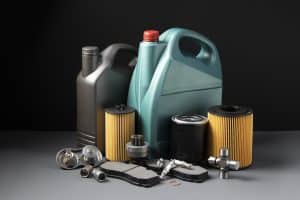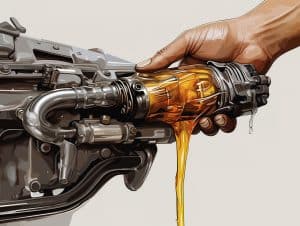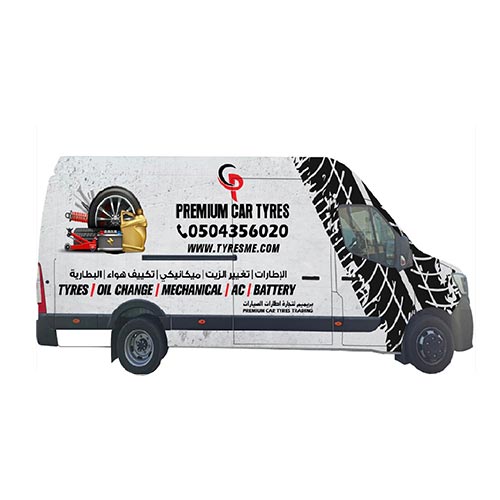Imagine your body without water; it wouldn’t work very well, right? Well, cars feel the same way about their oil. It’s like a superhero for engines, fighting off bad guys like dirt, dust, and tiny bits of metal that can cause trouble inside. By following a proper oil change guide and changing your car’s oil regularly, you’re making sure that this superhero is always strong, ready to protect your engine and keep it running smoothly. This simple act of care, as outlined in any basic oil change guide, does wonders: it keeps your engine happy, helps your car run better, saves you money on gas, and even protects the environment by keeping everything running clean and efficient. So, the next time you think about skipping an oil change, consult an oil change guide and remember: you’re not just doing your car a favor; you’re making a smart move for your wallet and the planet by adhering to the recommended oil change guide.
You can use our various car repair services in Dubai, including oil change in Dubai. also you can also buy tires in Dubai through our website.
Oil Changes: The Secret to a Long-Lasting Vehicle
You know how eating healthy foods keeps you fit and strong? That’s exactly what oil changes, as recommended by a reliable oil change guide, do for your car. Just like your body needs good nutrients, your car needs clean oil to keep everything inside running smoothly. Old, dirty oil is like junk food for your car; it can make things sluggish and cause parts to wear out faster. Regular oil changes, scheduled according to an oil change guide, clean out all the gunk and ensure your engine works like it’s supposed to. This not only keeps your car going for longer but also means fewer visits to the mechanic for big repairs. Following an oil change guide and keeping an eye on the oil change time are like giving your car a regular health check-up to ensure it stays fit and runs well for all the adventures you’ve planned together. This approach ensures you never miss an oil change time, maintaining your vehicle’s efficiency and longevity.
We suggest you also read this article: how to find the right battery for your car
Decoding Oil Change Frequency: When is it Time?
Figuring out when to change your car’s oil isn’t as tricky as solving a mystery. It’s more about listening to your car and knowing its needs. Back in the day, the rule was every 3,000 miles or every three months, whichever came first. But just like phones have gotten smarter, so have cars and the oils they use. Now, many cars can go 5,000, 7,500, or even more miles before needing an oil change. The secret is to check your car’s manual because it knows your car best. It will tell you the perfect when to change oil, based on what your car’s manufacturer recommends. Remember, every car is unique, just like people. Some might need more frequent changes, especially if they have a tough job, like towing trailers or going on many short trips in cold weather. By staying on top of when to change oil, you’re making sure your car stays in top shape, ready to hit the road whenever you are. Understanding when to change oil and adhering to that schedule is key to maintaining your vehicle’s health and performance.
If needed, you can also use our air conditioner repair services. Visit car air conditioner repair in Dubai for services.
Navigating the World of Motor Oil: What You Need to Know
Diving into the world of motor oil can feel like setting sail on a vast ocean, but it’s simpler than it seems, especially when it comes to picking between conventional and synthetic oil and understanding when should you change your oil. Think of conventional oil like a trusty rowboat. It’s been around for ages, doing a good job of keeping engines running without a hitch. Conventional oil comes from the ground and works well for most cars, especially if you’re sticking to regular, everyday driving. This brings us to the important question: when should you change your oil if using conventional oil? Typically, it’s more frequently than its counterpart due to its less refined nature.
On the other side, we have synthetic oil, which is more like a speedboat. It’s designed in labs to work harder and better, especially under tough conditions like extreme temperatures or high-performance driving. Synthetic oil keeps your engine cleaner and runs smoother for longer. It’s a bit more expensive upfront, but it’s like investing in better sports equipment – you get better performance and longer-lasting protection. When should you change your oil if it’s synthetic? Less often than with conventional, due to its engineered resistance to breakdown. This highlights the importance of knowing when should you change your oil based on the type used, as it significantly impacts engine health and performance.
Special Oils for Special Rides: Understanding Oil Types
– High-Mileage Oil: Designed specifically for older models or vehicles with a lot of miles on the odometer. It includes special additives that help maintain and protect aging engine parts, ensuring they continue to operate efficiently. This type of oil is akin to a tailored diet for senior individuals, aimed at keeping them healthy and active.
– Diesel Engine Oil: Crafted exclusively for the robust demands of diesel engines, which often undertake heavy-duty work. This oil’s formulation supports the unique needs of diesel engines, offering enhanced durability and performance under tough conditions. It’s comparable to a high-protein meal plan for athletes who require extra energy and muscle recovery after intense physical activities.
Your Vehicle’s Oil Change: A Step-by-Step Adventure
Checking your car’s oil is a straightforward task that offers insights into your vehicle’s health. Here’s how you can turn this task into a mini adventure, complete with steps and explanations:
- Ensure the Car is on Level Ground: This ensures accuracy in oil level readings. Oil pools unevenly if the car is tilted, leading to incorrect measurements.
- Wait for the Engine to Cool: Checking oil immediately after driving can result in hot oil splashing or inaccurate level readings due to oil not yet settling back into the pan.
- Locate the Dipstick: This is your key tool for checking oil. It’s usually marked with a bright handle to easily identify it. Think of the dipstick as your treasure map leading you to the oil’s secrets.
- Remove and Wipe the Dipstick Clean: First pull it out and clean it off with a rag or paper towel. This initial wipe ensures that your reading will be accurate, as it removes any oil that splashed onto the stick while the engine was running.
- Reinsert the Dipstick: After wiping, dip it back into the tube it came from, ensuring it’s fully seated. This action prepares you for the true measurement.
- Remove the Dipstick Again to Check Oil Level: Look at both sides of the dipstick to see where the oil level comes up to. The dipstick will have markings indicating the optimal oil level. This tells you if you need to add oil.
- Examine the Oil Color and Texture: Fresh oil is usually a clear, amber color, while old oil becomes dark and gritty over time. The color and texture give you clues about the oil’s condition and whether it’s time for an oil change.
- Reinsert the Dipstick and Close the Hood: After checking, make sure to put the dipstick back in place and securely close the hood. This step concludes your mini adventure.
This simple yet important check-up is akin to peeking into your car’s health diary, offering valuable clues about its maintenance needs and when it’s time for the next oil change.
Choosing the Right Oil: Tips from the Pros at Tyres Me
– Manufacturer-Recommended Oil: This is the type and viscosity of oil specifically suggested by your car’s maker. It’s tailored to fit the exact requirements of your engine, ensuring optimal performance and longevity. Following these recommendations is like using a master chef’s recipe to guarantee a delicious meal.
– Conventional Oil: Best suited for regular, everyday driving conditions. Conventional oil is a great “all-rounder” that keeps your engine running smoothly without the need for the extra bells and whistles of more specialized oils. It’s like a reliable pair of hiking shoes that are perfect for well-trodden paths.
– Synthetic Oil: Designed for vehicles that demand higher performance and protection. Synthetic oil is ideal for extreme temperatures and conditions, offering superior engine cleanliness and longer change intervals. It’s akin to high-tech hiking boots designed for rugged terrain and challenging hikes.
– Specialty Oils: These oils are formulated for specific types of vehicles or driving conditions, such as high-mileage oils for older cars or diesel engine oils. Using a special type of oil for your unique ride ensures that the engine’s specific needs are met, much like choosing specialized footwear for unique sporting activities to enhance performance and comfort.
We also provide battery replacement services in Dubai.
The Impact of Your Driving Style on Oil Change Needs
Just like how a sprinter has different needs than a marathon runner, your car’s oil change needs can vary greatly depending on whether you’re navigating the stop-and-go traffic of the city or cruising on open country roads. City driving is like a series of sprints for your car, with all those starts and stops putting extra stress on your engine – and its oil. This type of driving can cause oil to break down faster, meaning your car might need more frequent oil changes to keep everything running smoothly.
On the flip side, if you’re mostly driving on country roads, your car’s engine gets a more consistent workout without the constant stopping and starting. This means the oil can do its job more efficiently, potentially stretching the time between oil changes. However, don’t be fooled into complacency; regular checks are still essential to ensure your engine’s well-being, no matter the road you take.
Tackling Tough Conditions: Oil Changes for the Adventurous Driver
For those who love to push their cars to the limits, whether it’s by exploring rugged terrains or enduring extreme weather conditions, your adventurous spirit has a direct impact on how often you should change your oil. Harsh driving conditions, like towing heavy loads, driving in dusty areas, or regular high-speed travel, can put extra demand on your engine oil. In these scenarios, oil works overtime to protect your engine, which can lead to it degrading faster. Therefore, if your car’s adventures are more Indiana Jones than Sunday driver, it might be time to consider more frequent oil changes to ensure your vehicle keeps running as smoothly as your adventures.
If you live in Sharjah, you can also use our services. For more information, visit Car Repair in Sharjah.
Making the Most of Your Oil Change Service
Choosing Tyres Me for your next oil change service is like entrusting your car to a trusted friend who knows exactly what it needs to stay healthy. We’re not just about replacing old oil with new; we’re about providing a comprehensive service that ensures your car is at its best. Our experts don’t just change your oil; they also give your car a thorough check to spot any potential issues before they become major problems. Plus, with our convenient mobile van service, we can come to you, making maintaining your car as easy as pie. When you choose Tyres Me, you’re choosing a partner who’s committed to keeping your ride smooth and safe.
Maximizing Engine Health: Additional Services to Consider
An oil change is a great time to consider additional services that can help extend the life and improve the performance of your engine. At Tyres Me, we offer more than just oil changes; we provide a full suite of services designed to keep your engine humming. From replacing air filters to ensure your engine breathes clean air, to fluid checks that keep everything running smoothly, and even engine diagnostics to catch any issues early on, we’ve got you covered. By taking a holistic approach to your engine’s health, you can enjoy peace of mind knowing your car is in top condition, ready to take you wherever you want to go.
Ready for Hassle-Free Service? Contact Our Consultants Today!
If you’re looking for expert advice or need to book a service that comes right to your doorstep, look no further! Our mobile van service is designed to make your life easier by bringing top-notch car maintenance services directly to you. After booking with us, you can relax knowing that our skilled professionals will be arriving at your location as soon as possible, equipped and ready to ensure your vehicle is in the best shape. Whether it’s for routine checks or more detailed services, our team is here to help you every step of the way. Don’t wait; reach out to our consultants today and experience the convenience and quality of our mobile van service!
FAQ
Why is it important to change my car’s oil regularly?
Changing your car’s oil regularly is crucial for maintaining engine health. It’s like giving your engine a fresh dose of superhero strength to fight off dirt, dust, and tiny metal particles that can harm it. Regular oil changes keep your engine running smoothly, improve fuel efficiency, and even contribute to a cleaner environment by ensuring your car operates efficiently.
How often should I change my car’s oil?
The frequency of oil changes has evolved with advancements in automotive and oil technology. While older guidance suggested every 3,000 miles or three months, many modern vehicles can go 5,000 to 7,500 miles or more between oil changes. The best practice is to consult your car’s manual for the manufacturer-recommended schedule, which is tailored to your specific vehicle’s needs.
What’s the difference between conventional and synthetic oil?
Conventional oil, like a trusty rowboat, has been a reliable standard for years and is suitable for regular driving. It requires more frequent changes than synthetic oil, which is akin to a speedboat designed for high performance and extreme conditions. Synthetic oil offers better engine protection and efficiency over longer intervals, making it a cost-effective choice despite its higher upfront price.
Are there special types of oil for different vehicles?
Yes, there are oils designed for specific vehicle needs. High-mileage oil is tailored for older vehicles or those with many miles, including additives to protect aging engine parts. Diesel engine oil caters to the heavy-duty requirements of diesel engines, offering enhanced durability. Choosing the right oil type ensures optimal engine performance and longevity.
How can I check my car’s oil level and quality at home?
Checking your car’s oil involves locating the dipstick, ensuring the car is on level ground, and waiting for the engine to cool. After cleaning the dipstick, reinsert it to check the oil level against the marked optimal range. Examining the oil’s color and texture helps determine its condition—fresh oil should be clear and amber, not dark and gritty.
How does my driving style affect my oil change needs?
Your driving style significantly influences oil change frequency. City driving, with its stop-and-go traffic, stresses the engine more, potentially requiring more frequent oil changes. Conversely, smooth, consistent highway driving may allow for longer intervals between changes. Regardless, regular oil level and quality checks are essential.
How can I make oil changes more convenient?
For hassle-free oil change services, consider mobile van services like those offered by Tyres Me. These services bring professional maintenance directly to your location, saving you time and effort. Booking a mobile service means your vehicle receives expert care right at your doorstep, ensuring it stays in optimal shape without disrupting your schedule.






